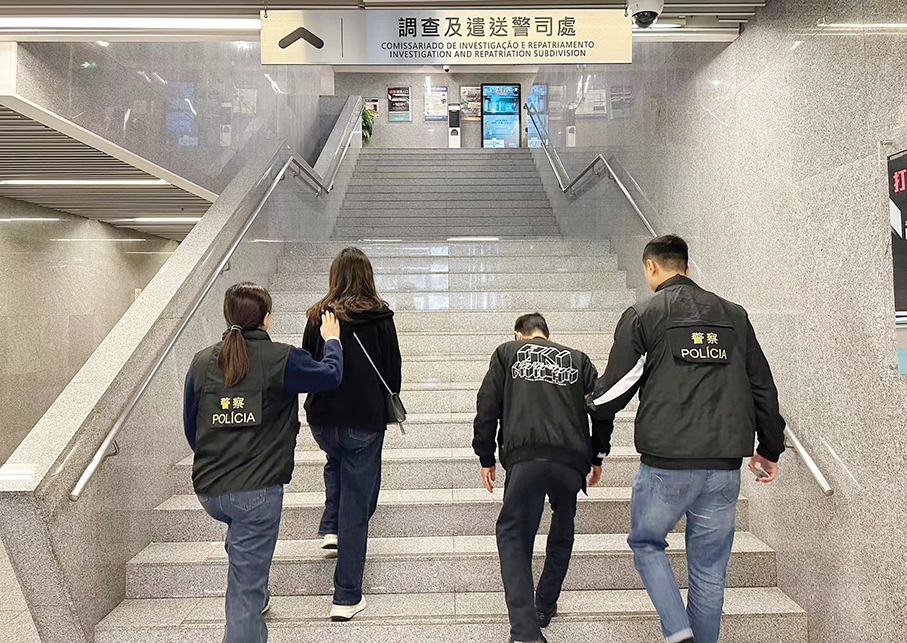The Macau government announced yesterday that Macau residents who began living in the Guangdong-Macau In-depth Cooperation Zone in Hengqin on or after March 1 last year can now be regarded as always having been in Macau, enabling them also to be eligible to receive the Macau government’s annual cash injection in their Central Provident Fund account.
The Social Security Fund (FSS) made the announcement during a press conference yesterday at its headquarters at China Civil Plaza in Nape.
According to the current Non-mandatory Central Provident Fund system, permanent local residents aged at least 22 who stay in Macau for at least 183 days a year are eligible to receive the government’s cash injection in their Central Provident Fund account in the subsequent year.
The government started to inject its handout to the Central Provident Fund accounts of eligible permanent local residents every year over a decade ago, but the government suspended the payments in 2021, 2022 and 2023 because of its deficit budgets during the COVID-19 pandemic.
The annual cash injection’s amount has remained at 7,000 patacas since 2014.
The government will again pay in the annual 7,000-patacas this year.
The annual cash payments are officially known as extraordinary budget surplus allotments.
According to the current law on the Non-mandatory Central Provident Fund system, those not staying in Macau because of certain special reasons can be officially regarded as actually having stayed in Macau, such as studying for a degree, hospitalisation, seniors aged at least 65 living in the mainland, and working outside Macau because of the need to support their family members in Macau.
According to the law, those who do not stay in Macau for humanitarian reasons or other duly substantiated reasons can also be regarded as actually staying in Macau, in which case it will be the chief executive who decides whether to approve the respective application after consulting FSS officials, according to the law.
Chief Executive Ho Iat Seng has meanwhile authorised Secretary for Social Affairs and Culture Elsie Ao Ieong U to exercise the respective decision power.
Self-employed locals living in Hengqin eligible to pay social security dues
In addition, according to yesterday’s press conference, the new measure, which takes effect today, also enables the respective beneficiaries to be eligible to join Macau’s social security system to pay their contributions.
Similarly, according to Macau’s current social security system, self-employed Macau residents are only eligible to register to pay their contributions (dues) if they stay in Macau for at least 183 days a year.
Similarly, self-employed Macau residents who are not in Macau because of the special reasons mentioned above can be officially regarded as being in Macau.
While it is mandatory for local employees and their employers to pay contributions to the city’s social security system, self-employed local residents can choose whether to pay their dues to the social security system.
According to the law on the social security system, only those who have paid their dues to the system for at least 60 months will be eligible to receive their retirement pension.
Macau’s social security system only covers local residents, both permanent and non-permanent.
Those who have paid their dues for 360 months (30 years) will receive the full amount of their monthly pension. Those who have paid their contributions for less than 360 months before retirement will receive a monthly pension with the amount calculated proportionately based on the number of months they have paid.
Govt expects more locals to pursue their careers in Hengqin
Addressing’s yesterday press conference, FSS President Iong Kong Io noted that the regulations for promoting the development of the Guangdong-Macau In-depth Cooperation Zone in Hengqin took effect on March 1 last year.
The regulations were passed by the Standing Committee of the Guangdong Provincial People’s Congress in Guangzhou in January last year.
Iong said that with more and more new measures having been announced by the Macau government since then with the aim of promoting the zone’s development, the government believes that more and more Macau residents will choose to pursue their careers there.
Iong said that the Macau government has decided to roll out the new measure with the aim of ensuring that Macau residents choosing to live in Hengqin for various reasons will continue to be eligible to receive the government’s cash injection in their Central Provident Fund account, and their counterparts who are self-employed will continue to be eligible to pay their contributions to the social security system.
Iong said that those who started to live in the in-depth cooperation zone on or after March 1 last year, i.e., when the regulations for promoting the zone’s development took effect, for various reasons such as studying, working , launching a business start-up, and enjoying their retirement, can now submit their applications to the Social Security Fund requesting that they be officially regarded as staying in Macau due to “other duly substantiated reasons” listed by the Non-mandatory Central Provident Fund law and the social security law.
Moreover, Ho Hoi Sang, who heads the fund’s Provident Fund System General Affairs Division, pointed out during the press conference that those who are in the in-depth cooperation zone because of breaking Macau’s laws or the zone’s laws are not eligible to benefit from the new measure.

Social Security Fund (FSS) President Iong Kong Io (centre), FSS Vice President Chan Pou Wan (right), and Ho Hoi Sang, who heads the fund’s Provident Fund System General Affairs Division, address yesterday’s press conference at China Civil Plaza in Nape. – Photo: FSS








